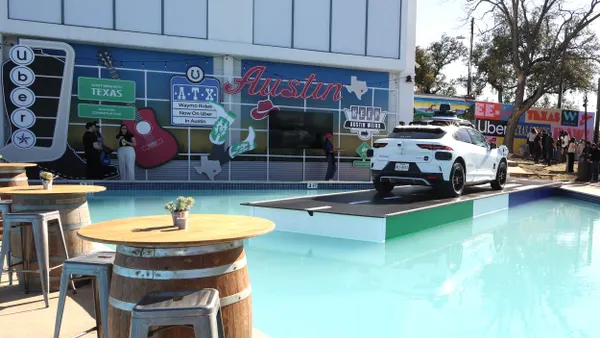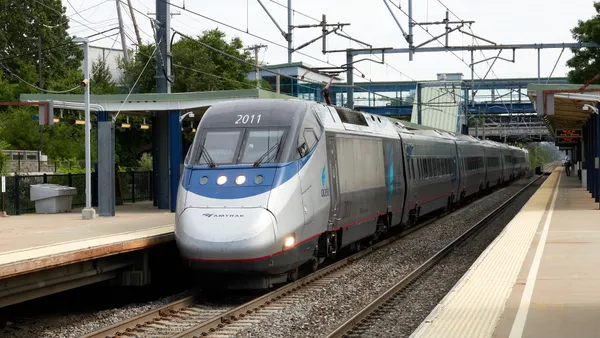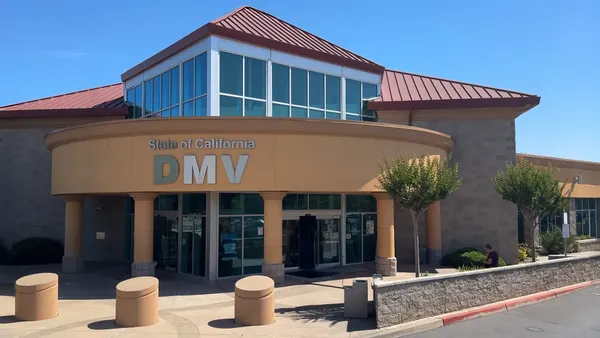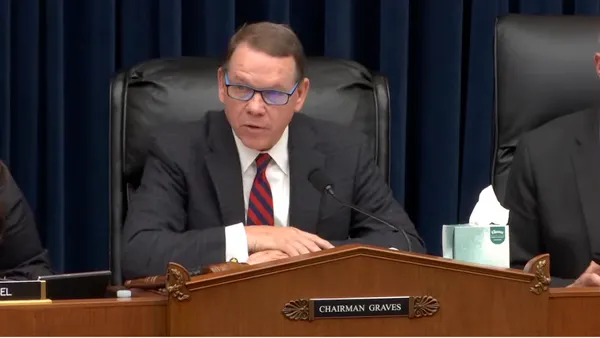Dive Brief:
- General Motors (GM) announced it has filed a petition with the Department of Transportation (DOT) for its fourth-generation self-driving Cruise AV, which would be the first production-ready AV built with no steering wheel, pedals or manual controls.
- In its 2018 Self-Driving Safety Report, GM outlined perception technology to be featured on the vehicle, including cameras, LiDAR, long-range radars, short-range radars and articulating radars. GM also noted the car would use "planning operations" to determine vehicle behavior, and a "controls" function to interpret commands from the planning phase.
- While GM strives to comply with federal safety laws, the petition asks the DOT to waive human driver-based laws that cannot be met by the Cruise AV — most notably, steering wheel airbags, as reported by NPR. If given the green light, GM plans to roll out the AVs by 2019.
Dive Insight:
This news comes on the heels of GM's December announcement that the automaker would launch a fleet of fully autonomous ride-hailing vehicles in various cities by 2019. At the time, GM President Don Ammann said the decision was a financial one, and the revenue generation of one self-driving car could eventually hit "several hundred thousands of dollars," compared to the $30,000 that GM collects per non-autonomous vehicle, on average. The company had originally tested the ride-hailing fleet with autonomous Chevy Bolts in San Francisco, Phoenix and Detroit, though it is now assumed the driverless fleet will feature the aforementioned Cruise AVs.
While autonomous tech acceptance has increased around the globe in the past few years, 47% of U.S. consumers still believe that AVs will not be safe — and this introduction of a pedal-less car with no opportunity for consumer control may worsen that statistic. Comedy sketch show Saturday Night Live even took a stab at GM this week with a joke from cast member Colin Jost, who said, "General Motors announced that it's making a line of self-driving cars that has no steering wheel, no gas or brake pedals, no windows, and it's a coffin." Though the joke was well-received by the studio audience, it strengthens the skepticism that these cars may not meet safety expectations.
GM has an opportunity to turn that perception around with support from the DOT. Columbus Business First reports that, during the AutoMobili-D event in Detroit yesterday, U.S. Secretary of Transportation Elaine Chao said the Trump administration supports a future with AVs, though "There are legit public concerns to address," and "Safety is always our No. 1 priority." The DOT is reportedly working on "version 3.0" of guidelines for safe testing and integration of AVs, and if GM can get the DOT to come around on its futuristic design of self-driving cars, it is possible that consumer confidence will rise, and the automaker's vision will be one shared by other AV manufacturers moving forward.










